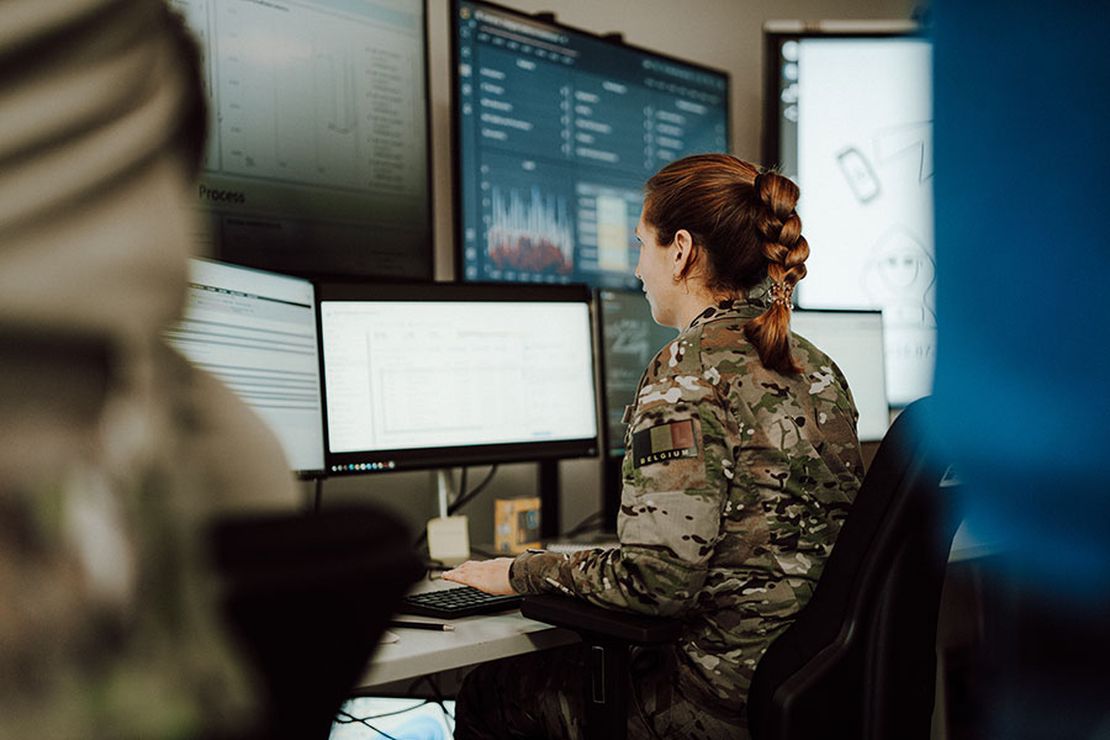Securing Cyberspace: Belgian Cyber Command at Howest

On November 12, we had the opportunity to attend a Tech&Meet session unlike any other. The speaker was Colonel Gunther Godefridis, Director for Development & Readiness at Belgian Cyber Command, and the topic: safeguarding our country in the digital domain.
Held at Howest Campus Brugge Station, the event drew students, researchers, and professionals eager to understand how military-grade cybersecurity operations are run, and why they matter more than ever.
Defending in the Digital Age
Colonel Godefridis began by outlining the core mission of Belgian Cyber Command: protecting Defense’s networks and weapon systems, supporting intelligence operations (ADIV), and conducting defensive and offensive operations in cyberspace. In short, Cyber Command isn’t just watching traffic, it’s actively shaping Belgium’s digital resilience.
With society’s increasing reliance on digital infrastructure, the risks of espionage, disinformation, and attacks on critical systems are no longer theoretical. Godefridis highlighted the urgency of being able to respond to, not just detect, those threats.
Working Together: Academia, Industry, Government
One theme that stood out was collaboration. Cyber Command doesn’t operate in a vacuum. It works closely with national agencies, NATO partners, academic institutions, and the private sector. The colonel emphasized that defending cyberspace requires broad cooperation, and Belgium’s approach is to engage across domains, military, civil, and industrial.
He also made it clear that this isn’t just about defense systems or classified data. As the line between civil and military digital infrastructure blurs, vulnerabilities in civilian systems can become national security issues. That’s where cooperation becomes essential.
Leading with Innovation
With over 20 years in military service, Colonel Godefridis brings a unique perspective. From artillery innovation to defense technology strategy, and now to cyber development, his background reflects the evolving nature of conflict and the military’s response.
He discussed how innovation, including artificial intelligence, is becoming central to cyber defense. Cyber Command is investing in tools and skills to automate threat detection, analyze large datasets, and simulate attack scenarios. It’s not just about building walls, it’s about staying several moves ahead.
A Transparent, Human Conversation
The Q&A session at the end made the evening especially memorable. Questions ranged from technical details of cyber defense capabilities to the human side of cyber careers: how people are trained, what skills are valued, and how students might contribute.
Colonel Godefridis was honest about the challenges. Cyber operations evolve quickly, and so do adversaries. But he was equally clear about the opportunity: Belgium is building a capability that matters, and it needs talent.
Final Thoughts
If you walked into this talk expecting a dry presentation on military infrastructure, you were wrong. This session was a deep, realistic, and engaging look into how Belgium is preparing for cyber conflict, and how students like us could be a part of that mission.
Whether you’re in cybersecurity, software development, or systems engineering, there’s a growing role to play. And as Colonel Godefridis made clear: it’s not just a job. It’s part of defending a society that’s more vulnerable, and more connected, than ever before.
Tip
Want to learn more about Cyber Command? Visit the official website at mil.be